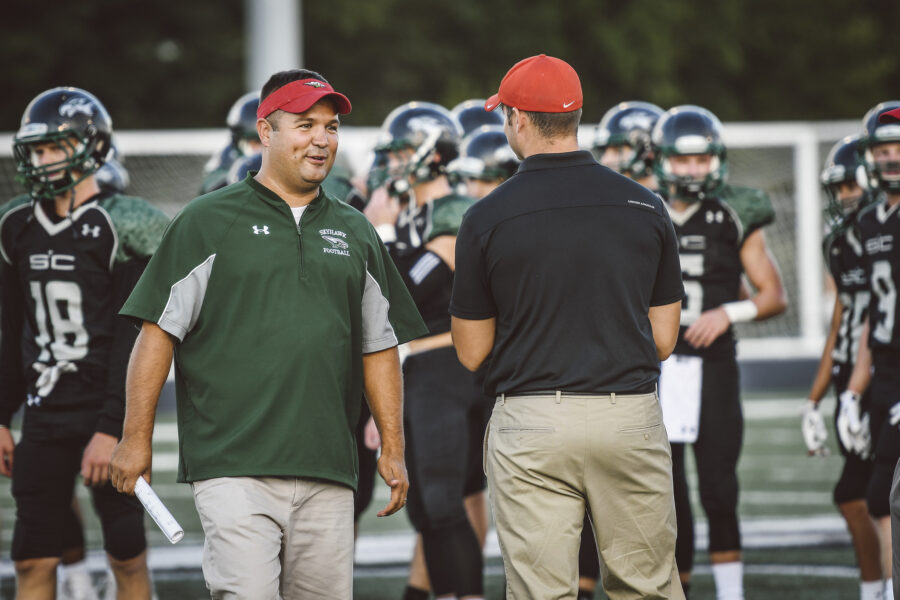Keep Your Staff Together by Establishing a Sound, Strong Culture

Assistant coaches are vitally important in football. Building a strong culture keeps them around and benefits the team.

The culture of the football program begins inside the coach’s office. Everything your team represents, promotes and values comes from the coaching staff. The head coach establishes the culture by instituting the most important values to the program. Every assistant must embrace these values in order to spread the culture to the players. And they’ll only do this if they feel valued and respected in return.
Create value within the office by providing opportunities to perform various responsibilities. These can vary based on each coach’s strengths, weaknesses, experience and potential. Trust the coaches to complete each task to their best capabilities. That belief in someone builds confidence, loyalty and an emotional connection.

Coaches are responsible for spreading and teaching the desired culture to the athletes. If coaches don’t know or understand what the culture is, the fate of the program is left to chance. You must communicate clearly to everyone involved. The beginning of each season and the first coaches’ meetings provide the perfect opportunity to review the program’s culture and expectations. Make sure you follow up and reinforce the message throughout the season and school year in meetings, texts and activities that help foster the desired environment.
Coaches consume information they feel will benefit their football program and profession. Use this to your advantage by setting objectives to learn and share with the rest of the staff. Provide a book for all coaches to read, or ask them to read a book of their choice and have a discussion at a future staff meeting. Trust assistants to deliver presentations at clinics. By supporting the professional development of your staff, you’ll help construct the culture you want in your program, and enable them to convey the culture to the athletes.
Positive and constructive feedback will engage coaches in the process of culture building. Let the assistants know when they have done a good job and where they can improve. Coaches look for rewards just as much as players. Those rewards come in the form of recognition, respect and upward mobility within the staff. When you have a culture that develops the best coaches, you no longer have to look outside your staff for the best coach available. The environment and culture of the office will keep coaches in the program.
Coaches are the disciples of the culture. You need them emotionally connected to the athletes and the program. That connection begins with how you address and engage your coaches in the office. If you want your staff to grow and stay together, then provide a positive culture of growth and support. When the basis of your culture starts in the coaches office, a successful program can be born.
